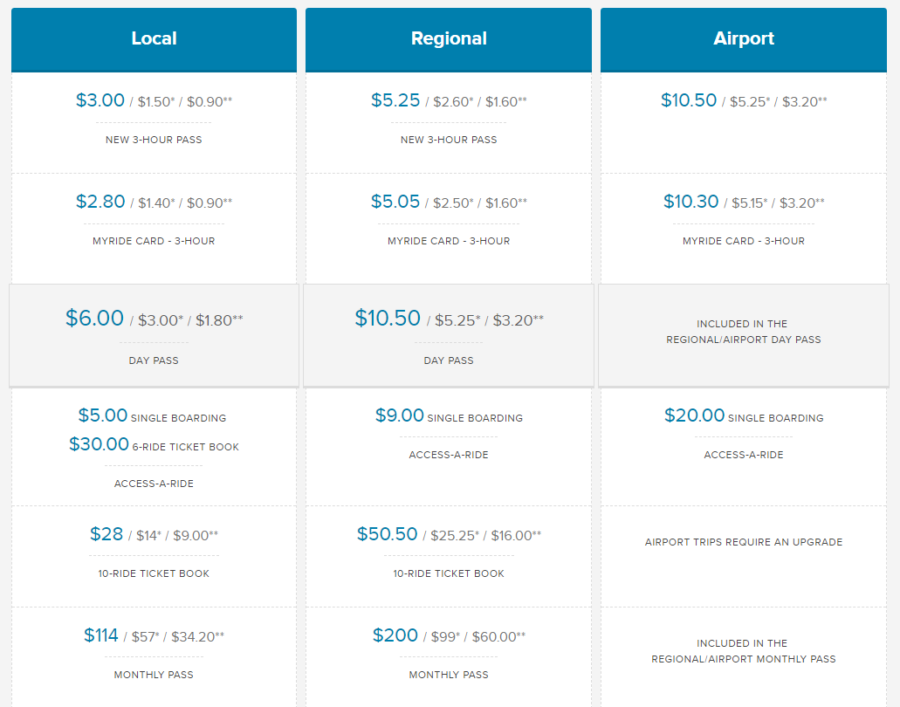Breaking Down Concern Over New RTD Fare Prices
February 1, 2019
Many new things are coming in this new year: the Denver Broncos are renewing their coaching staff, Medicare costs are going up, and T Mobile and Sprint are still set to merge into the largest telecom service provider in the nation. Every year, the Regional Transportation District addresses what changes need to be made for system improvements, and this includes updates to fare prices and brackets. Coming into 2019, there are quite a few changes to cover.
This year saw the first rise in ticket prices since 2016, when RTD raised fare prices from $2.25 for a local one way to $2.60. For students, they raised it to $1.30, a 20 cent increase. Now, with local tickets hitting a high of $3, there are a lot of changes coming to the fares and how they work.
The biggest change, and most important for students, is the new Youth Discount fare. While other fare prices are rising, this new discount comes as low as 90 cents. This new ticketing bracket is available to any individual ages six to nineteen, and doesn’t require enrollment in a school. This makes the first time in more than a decade tickets can be purchased for less than a dollar.
Another change coming this year is the three-hour pass. Before, the regular base fare covered you for a one-way trip, regardless of how long it took. The new base ticket lasts three hours, regardless of which direction you head in.
For people with the MyRide wireless card, a program that rolled out last year allowing a saved balance to be spent on busses and trains with a wireless payment card, there is a 20 and 10 cent discount on top of regular and discount fares, respectively. Unfortunately, there is no additional discount on top of the student discount with the MyRide card.
Day and monthly passes are staying, which are available on the RTD Mobile Tickets app that allows you to buy three-hour, day, and monthly passes on your phone and store in a digital wallet to use on busses and trains. This app allows riders to pre purchase tickets and store for 45 days until activation. However, yearly passes are getting the boot.
A program that hasn’t come yet is a new low income discount. RTD states that sometime in mid-2019, a new low income bracket will be introduced, giving households at or below 187% of the federal poverty line a 40% discount. One of the biggest worries with this is due to the high cost of living in Denver, the federal poverty line often doesn’t accurately serve the needs of Denver’s low income residents.
The big news here is really how the fare brackets are being changed. Prices are going up where they need to in order to match inflation, but going down in high priority areas. Many people are upset to pay more in fares when RTD has failed to stick to new line openings and is stuck in court with contractors. Residents of the Denver metro area already approved a tax increase this last November and in 2004, yet people feel like they are being charged for services they aren’t receiving. The setbacks on new commuter rail lines are nothing short of unfortunate and frustrating, and a rise in fare prices is rubbing many the wrong way.
What is important to take away are the new discount brackets and ways to pay. With the coming year, RTD continues to operate as a public service, and these new changes are the way they have chosen to best serve the riders.

